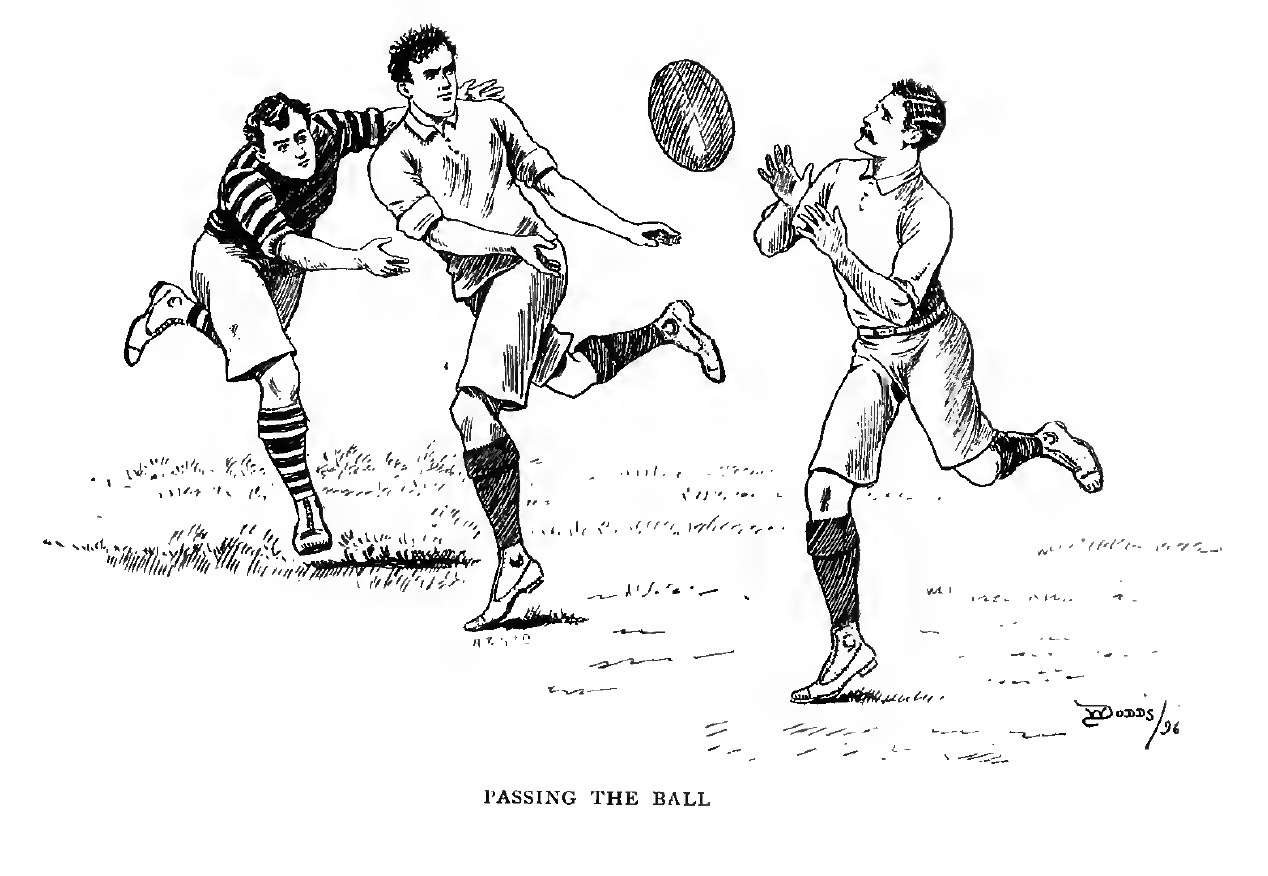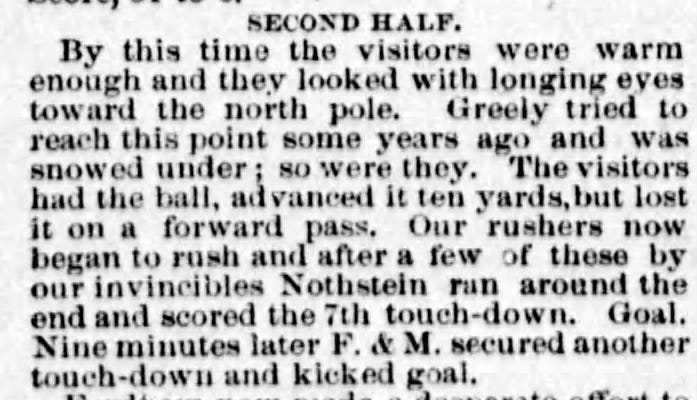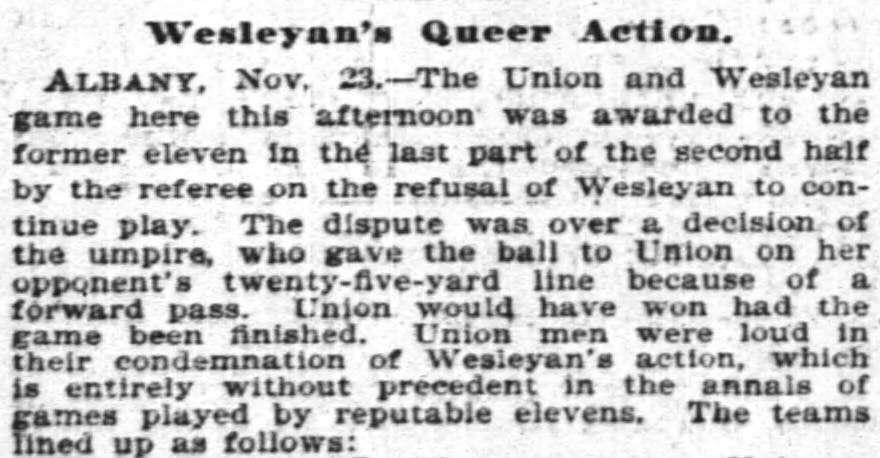Today's Tidbit... Illegal Forward Passing Before 1906
There are periodic claims that football's first forward pass occurred before 1906, but those claims misinterpret the vocabulary of the time and tactics that were against the rules. Until the 1940s, all ball exchanges between players on offense were called passes, whether they went backward, sideways, or forward. Before the 1940s, "handoff" was synonymous with stiff arm. It did not take on its current meaning until used to describe the quarterback-running back exchange of the Modern T formation's dive play.
The two most prominent mentions of pre-1906 forward passes involve Walter Camp, Pop Warner, and John Heisman. The first came one week after the Intercollegiate Football Association passed its first set of rules in 1876, which prohibited the forward pass. Walter Camp was in the process of being tackled, tossed the ball forward to a Yale teammate who proceeded to cross the goal line, leading Princeton to protest the illegal play. The story goes that the referee was unclear about the week-old rules, so he ruled by flipping a coin that landed in Yale's favor.
A second common claim concerning a pre-1906 forward pass came under similar circumstances during the 1895 North Carolina-Georgia game. A Carolina player came under pressure while attempting a punt, so he rolled out and tossed the ball to a teammate who was upfield from him. Although Georgia's coach, Pop Warner, protested the call, the officials allowed the play to stand. John Heisman, who was scouting the game, saw the play and later claimed it influenced his support of the forward pass in 1905-1906. Heisman made this claim despite newspaper articles of the time making no mention of a controversial pass during the game. In addition, Heisman would have witnessed so many illegal forward passes in his day that it seems unlikely this one would have seemed remarkable.
Of course, neither play nor any others like them were legal then, and the officials' failure to call or rule on them correctly does not change that fact. None of those events was a legal forward pass any more than punting the ball over the crossbar constituted a field goal.
Like the rugby union rules, football's first rules recognized the difference between onside and offside players. A player was offside when positioned closer to the opponent's goal line than a teammate who possessed the ball. During Camp's playing days, offside players could not actively participate in play while offside, but football's legalization of blocking in the 1880s changed that. Blockers were often offside, but it remained illegal for an offside player to catch and advance a pass.
While the two incidents mentioned above are the best-known of the illegal forward passes, they were not isolated. Forward passes occurred regularly in games from the 1880s through 1905. Whether deliberate or accidental, they were against the rules and resulted in a turnover; the team making the forward pass lost possession of the ball.
Below are a few of the hundreds of mentions of illegal forward passes in newspaper coverage of games back then. Some were close calls and controversial, leading at least one team to walk off the field in protest.
So, while there were forward passes before 1906, they were illegal and, when called correctly, resulted in a severe penalty.
Football Archaeology is reader-supported. Click here to buy one of my books or otherwise support the site.






I always thought that was a weird "claim" for UNC.
I've been revisiting odds and ends and the "first" game under the IFA rules has led me on a quest to find map representation of St. George's Cricket Grounds. A one-off #ForgottenFields quest. While the Hoboken Museum has publications that claim the first forward pass, they don't claim the first game. But boy, do they claim a lot of firsts: baseball, Oreos, public air conditioning, etc. (More recently you stated this pass was CC Camp, not Walter.)